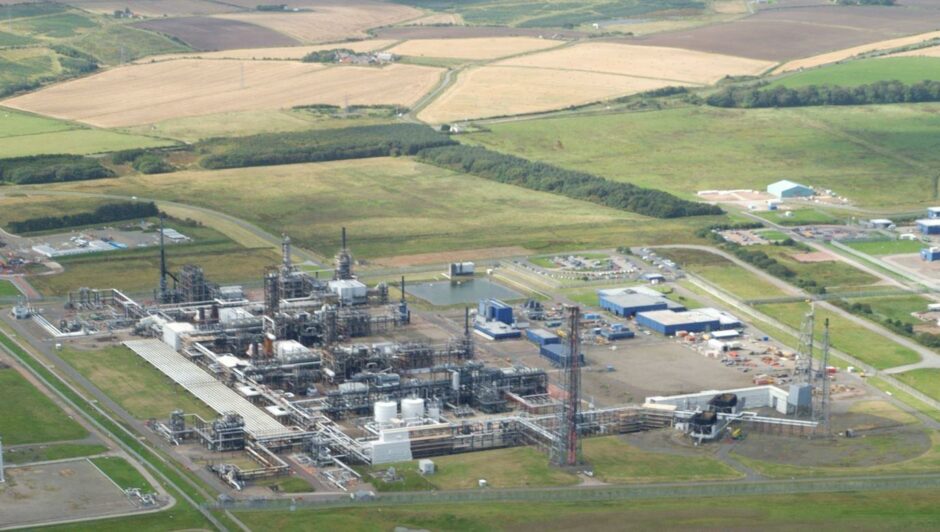
The UK Government’s decision to put the Acorn project on a reserve list offers “no advantage”, says a world-leading carbon capture expert.
The north-east was dealt a major blow in October when the UK Government chose to reject the Scottish Cluster bid, which includes the Acorn project in Aberdeenshire.
Professor Stuart Haszeldine, carbon capture and storage expert at the University of Edinburgh, says there is “no advantage” in the project’s selection as a reserved bidder.
However, a UK Government spokesman said it “disagrees strongly with the comments”, describing the bid as a “credible reserve option”.
On Tuesday, MSPs on the net zero, energy and transport committee held a session on carbon capture, utilisation and storage where they heard from a panel of experts.
They heard from Prof Haszeldine that carbon capture projects are “fundamental” to Scotland meeting its net zero targets by 2045.
However, the carbon capture expert was critical of the UK Government for only awarding the Scottish cluster “reserved status”.
He said: “The status of the reserved bidder at the moment, as far as I can understand from the BEIS documents and also by conversation with people intimately involved in the project, is that there is no advantage in being involved as a reserved bidder.
“It just means you have to go to a lot of meetings but there’s very little chance of one of the other bidders being declared void so you’re effectively being asked to run on the spot with very little or no funding.
“And it prevents you from generating other opportunities in the meantime if you focus on that.”
The Acorn project at the St Fergus Gas Terminal in Peterhead would have taken industrial emissions and stored them in depleted gas reservoirs in the North Sea.
However in a widely-criticised move, the UK Government picked two schemes in northern England to go forward in the first round of bids.
Instead the Scottish Cluster was announced as a reserve cluster “if a back-up is needed”.
Prof Haszeldine told the committee that there is “no way of knowing” if a future bid from the Acorn project would be awarded funding in the second round due to not knowing the criteria yet.
He added: “I’m very sure there will be at least two more bidders for carbon capture and storage projects from England in that track two set of criteria.
“So depending on the criteria, we’re just gambling again.”
MSPs also heard from Erik Dalhuijsen, an oil industry expert and climate change activist, who said he is “convinced” the push of carbon capture projects is being used to justify “natural gas growth”, despite the need for a reduction in fossil fuels.
The Scottish Government has asked the UK Government to reverse the decision and fully fund the cluster.
A UK government spokesperson said: “We disagree strongly with these comments. As first-of-a-kind projects, all clusters will carry inherent delivery risks, which is why we think it’s important to have a credible reserve option available.
“The strong potential of the Scottish Cluster – which has already been allocated £40m in UK government funding – has been confirmed by the Phase-1 assessment process and this is just the start.
“This is good news for the future competitiveness of Scotland’s industry, and we will work with the Scottish Cluster to help continue their development.”
Recommended for you
